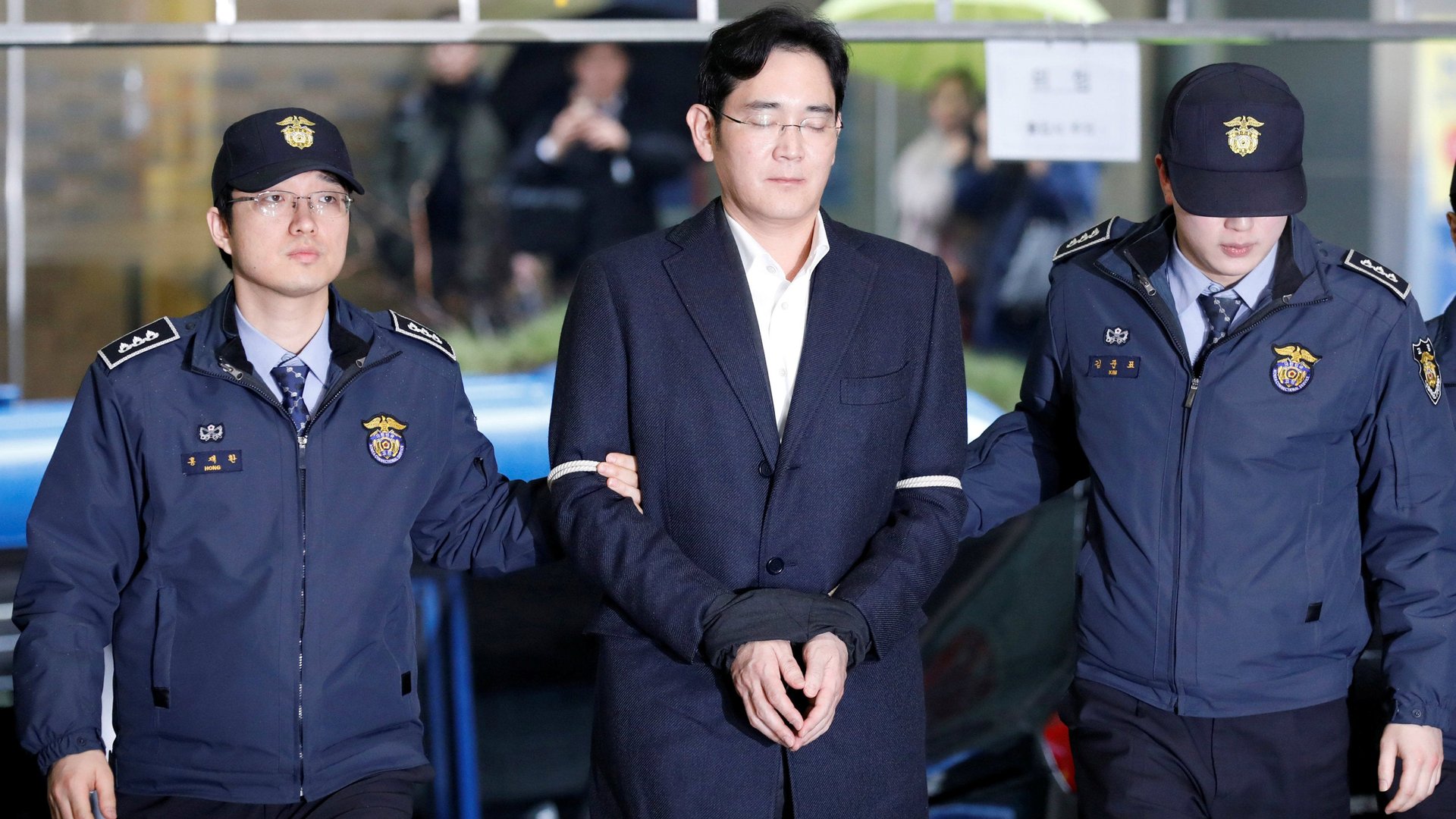South Korean prosecutors will indict Samsung heir Jay Y. Lee for paying $36 million in bribes
Samsung’s top company will be gearing up for the courtroom.


Samsung’s top company will be gearing up for the courtroom.
South Korean prosecutors announced today they will indict Jay Y. Lee, the company’s de-facto leader, on charges of bribery, embezzlement, perjury before parliament, and hiding assets overseas. The announcement ensures that Lee will face a trial, which could derail the company’s succession plan—but it might also pave the way for corporate reform in Korea.
Prosecutors allege that Lee, along with four other executives who have also been indicted, funneled 43 billion won ($36.4 million) to companies owned by Choi Soon-sil, a close confidante to president Park Geun-hye. In exchange, Samsung won approval (paywall) for a merger of two Samsung subsidiaries, Samsung C&T and Cheil Industries—despite how the deal would cede power over Samsung Electronics to Lee at the expense of shareholders.
Earlier this month the Seoul Central District Court approved prosecutors’ arrest warrant for Lee, who was quickly placed in jail. His indictment means that he will go on trial, a process which could potentially last more than a year.
Two questions surround Lee’s indictment and subsequent legal case.
First, will it hurt Samsung’s business? This seems unlikely. While Lee is involved in long-term strategic decision-making, the conglomerate’s business divisions, including Samsung Electronics, operate largely as independent entities. Putting Lee behind bars and dragging him to the courtroom would only remove one leader among many from Samsung. And it’s possible that like other jailed Korean business moguls (paywall), he’ll be allowed to effectively continue to run the company from prison.
The second question surrounding Lee’s indictment is whether it will lead to government-mandated corporate reform for South Korea’s chaebol—the family-run conglomerates that dominate the economy and society at large. Samsung, like Lotte, LG, and other Korean giants, has an opaque shareholding structure that’s shielded from standard, Western-style corporate accountability practices—helping to enable rampant corruption in Korea’s industries.
On this issue, early signs show promise. Lee’s arrest is unprecedented. His father was convicted for tax evasion but never arrested. The mass protests that erupted in the wake of the Park scandal likely prompted Korea’s courts, which normally give chaebols a light touch, to pursue Lee more aggressively. Meanwhile, Samsung recently announced it plans to dismantle its “corporate strategy office”—a “control tower” of sorts where Lee and other executives from Samsung Group companies discuss long-term strategy, away from shareholders and board members.
The legal scrutiny, coupled with public resentment toward the Korean establishment, might cause Samsung and other corporations to align their structures more transparently in the future.